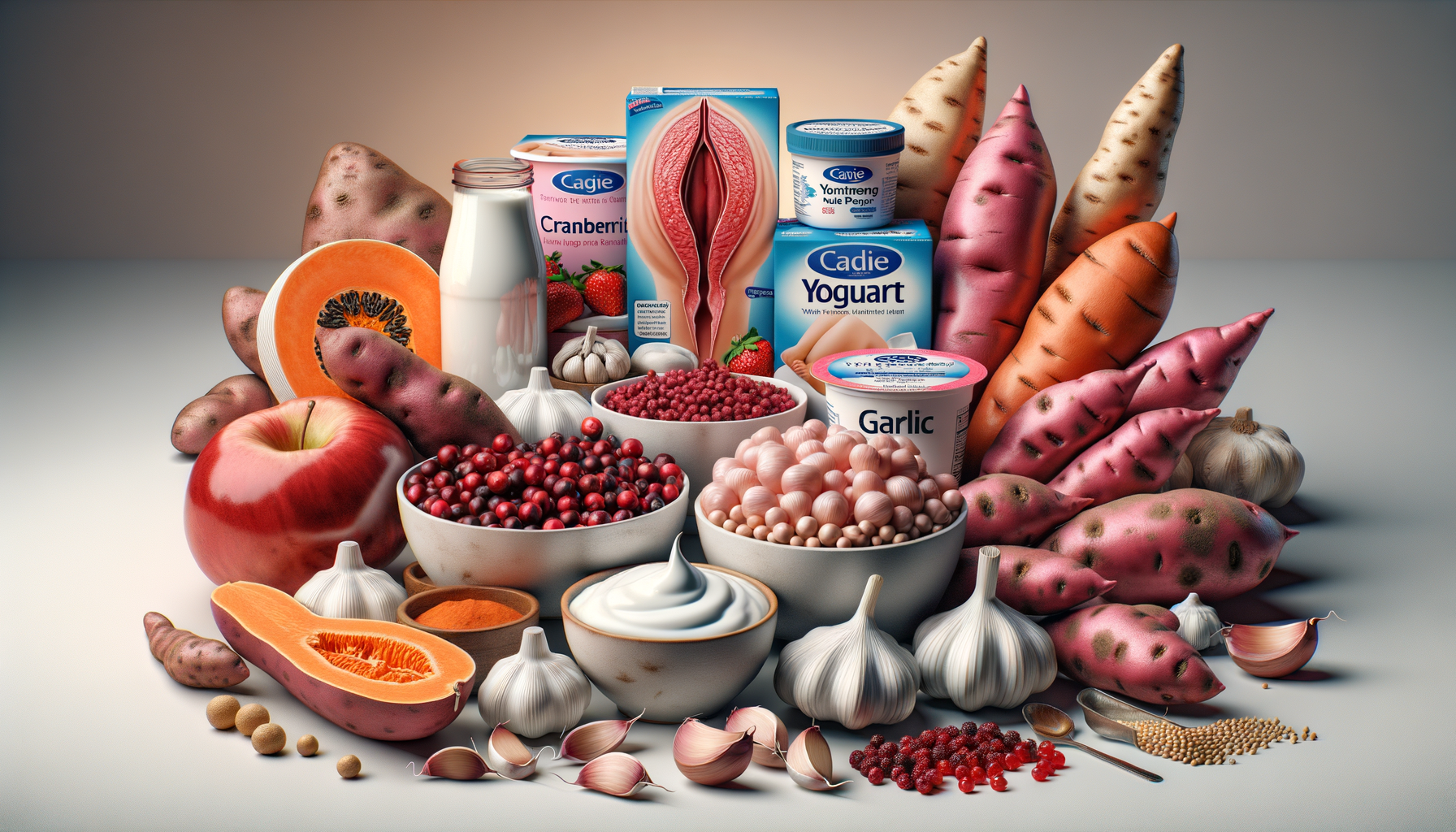Foods that improve vaginal health
Exploring dietary choices that can contribute to maintaining and improving vaginal health.

Introduction to Vaginal Health and Nutrition
Vaginal health is a crucial aspect of overall well-being for many individuals. It is often influenced by various factors, including lifestyle, hygiene, and diet. While hygiene and lifestyle are commonly discussed, the role of nutrition in maintaining vaginal health is sometimes overlooked. This article delves into the importance of dietary choices in supporting vaginal health and explores foods that can contribute positively to this aspect of health.
The connection between diet and vaginal health is significant because what we consume can impact the body’s natural balance. A balanced diet can help maintain the optimal pH levels and support the growth of healthy bacteria, which are essential for preventing infections and promoting overall vaginal health.
Probiotics: Nature’s Balancers
Probiotics are live bacteria and yeasts that are beneficial for health, particularly the digestive system. They are often referred to as „good“ or „friendly“ bacteria. Probiotics play a vital role in maintaining the balance of microflora in the body, which is crucial for vaginal health.
Foods rich in probiotics include yogurt, kefir, sauerkraut, and kimchi. These foods help maintain the natural balance of bacteria in the vagina, reducing the risk of infections such as bacterial vaginosis and yeast infections. Regular consumption of probiotic-rich foods can support the body’s natural defenses and promote a healthy vaginal environment.
- Yogurt: Contains live cultures that help balance vaginal flora.
- Kefir: A fermented drink that offers a high concentration of probiotics.
- Sauerkraut: Fermented cabbage that supports gut and vaginal health.
Hydration and Its Role in Vaginal Health
Staying hydrated is essential for overall health, and it plays a significant role in maintaining vaginal health as well. Adequate hydration helps in maintaining the mucous membranes in the vagina, which are crucial for preventing dryness and irritation.
Water is the simplest and most effective way to stay hydrated. Herbal teas and water-rich foods like cucumbers and watermelon can also contribute to hydration. Proper hydration supports the body’s natural cleansing processes and helps in maintaining the optimal pH balance in the vaginal area.
- Drink plenty of water throughout the day.
- Include water-rich foods in your diet.
- Opt for herbal teas for additional hydration.
Omega-3 Fatty Acids: Supporting Hormonal Balance
Omega-3 fatty acids are essential fats that have numerous health benefits, including supporting hormonal balance, which is vital for vaginal health. These fats are known to reduce inflammation and support the body’s natural lubrication processes.
Foods rich in omega-3 fatty acids include fatty fish like salmon and mackerel, flaxseeds, chia seeds, and walnuts. Incorporating these foods into your diet can help maintain hormonal balance and reduce the risk of vaginal dryness and discomfort.
- Fatty fish: Provides a rich source of omega-3s.
- Flaxseeds: Can be added to smoothies or yogurt.
- Walnuts: A convenient snack rich in omega-3s.
Antioxidant-Rich Foods: Fighting Free Radicals
Antioxidants are compounds that help fight free radicals in the body, which can cause cellular damage. Consuming antioxidant-rich foods can support the immune system and promote overall health, including vaginal health.
Fruits and vegetables such as berries, spinach, and kale are excellent sources of antioxidants. These foods help protect the body’s cells, including those in the vaginal area, from oxidative stress and damage. A diet rich in antioxidants can support a healthy immune response and reduce the risk of infections.
- Berries: Packed with antioxidants and vitamins.
- Spinach: A leafy green rich in nutrients.
- Kale: Known for its high antioxidant content.
Conclusion: Nourishing Your Body for Optimal Vaginal Health
Maintaining vaginal health is an integral part of overall wellness. By making informed dietary choices, individuals can support their body’s natural processes and promote a healthy vaginal environment. Incorporating foods rich in probiotics, omega-3 fatty acids, and antioxidants, along with staying hydrated, can make a significant difference in vaginal health.
It’s essential to remember that while diet plays a crucial role, it should be part of a holistic approach that includes regular medical check-ups and proper hygiene practices. By nourishing the body with the right foods, individuals can enjoy the benefits of improved vaginal health and overall well-being.